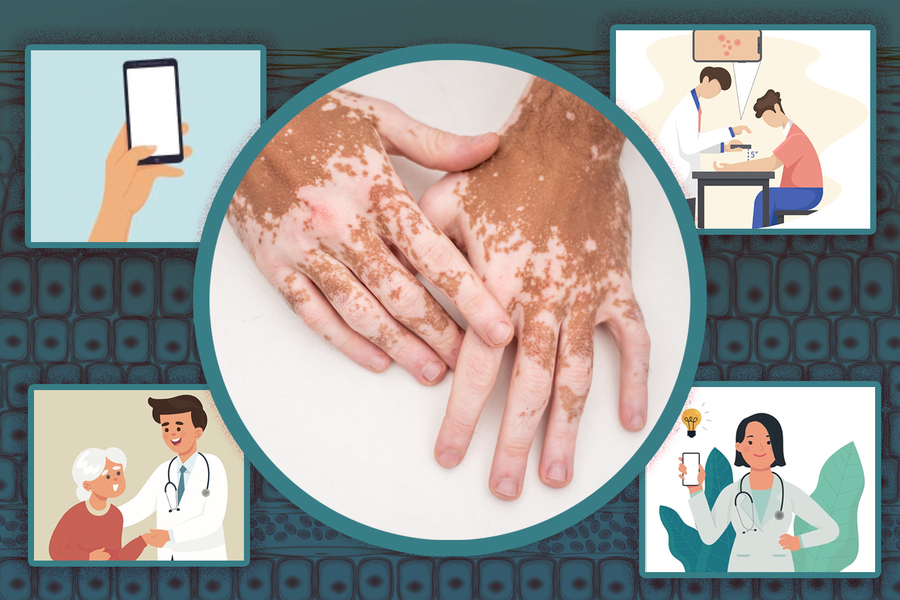IDEAS Alumni: Piction Health featured in MIT News!

At the age of 22, when Susan Conover wanted to get a strange-looking mole checked out, she was told it would take three months to see a dermatologist. When the mole was finally removed and biopsied, doctors determined it was cancerous. At the time, no one could be sure the cancer hadn’t spread to other parts of her body — the difference between stage 2 and stage 3 or 4 melanoma.
Thankfully, the mole ended up being confined to one spot. But the experience launched Conover into the world of skin diseases and dermatology. After exploring those topics and possible technological solutions in MIT’s System Design and Management graduate program, Conover founded Piction Health.
Piction Health began as a mobile app that used artificial intelligence to recognize melanoma from images. Over time, however, Conover realized that other skin conditions make up the vast majority of cases physicians and dermatologists see. Today, Conover and her co-founder Pranav Kuber focus on helping physicians identify and manage the most common skin conditions — including rashes like eczema, acne, and shingles — and plan to partner with a company to help diagnose skin cancers down the line.
“All these other conditions are the ones that are often referred to dermatology, and dermatologists become frustrated because they’d prefer to be spending time on skin cancer cases or other conditions that need their help,” Conover says. “We realized we needed to pivot away from skin cancer in order to help skin cancer patients see the dermatologist faster.”
After primary care physicians take a photo of a patient’s skin condition, Piction’s app shows images of similar skin presentations. Piction also helps physicians differentiate between the conditions they most suspect to make better care decisions for the patient.
Conover says Piction can reduce the time it takes physicians to evaluate a case by around 30 percent. It can also help physicians refer a patient to a dermatologist more quickly for special cases they’re not confident in managing. More broadly, Conover is focused on helping health organizations reduce costs related to unnecessary revisits, ineffective prescriptions, and unnecessary referrals.
So far, more than 50 physicians have used Piction’s product, and the company has established partnerships with several organizations, including a well-known defense organization that had two employees diagnosed with late-stage melanoma recently after they couldn’t see a dermatologist right away.
“A lot of people don’t realize that it’s really hard to see a dermatologist — it can take three to six months — and with the pandemic it’s never been a worse time to try to see a dermatologist,” Conover says.
Shocked into action
At the time of Conover’s melanoma diagnosis, she had recently earned a bachelor’s degree in mechanical engineering from the University of Texas at Austin. But she didn’t do a deep dive into dermatology until she needed a thesis topic for her master’s at MIT.
“It was just a really scary experience,” Conover says of her melanoma. “I consider myself very lucky because I learned at MIT that there’s a huge number of people with skin problems every year, two-thirds of those people go into primary care to get help, and about half of those cases are misdiagnosed because these providers don’t have as much training in dermatology.”
Conover first began exploring the idea of starting a company to diagnose melanoma during the Nuts and Bolts of Founding New Ventures course offered over MIT’s Independent Activities Period in 2015. She also went through the IDEAS Social Innovation Challenge and the MIT $100K Entrepreneurship Competition while building her system. After graduation, she spent a year at MIT as a Catalyst Fellow in the MIT linQ program, where she worked in the lab of Martha Gray, the J.W. Kieckhefer Professor of Health Sciences and Technology and a member of MIT’s Institute for Medical Engineering and Science (IMES).
Read the full article on MIT News
Tags: Health, Health & Medicine, IDEAS, IDEAS Alumni Profiles, PKG Alumni
